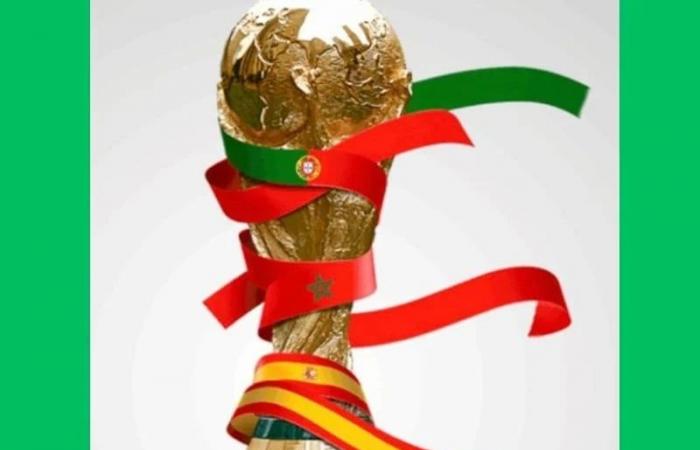The awarding of the organization of the 2030 World Cup to a joint file between Morocco, Spain and Portugal marks a historic moment, since it is the first time that such an event has taken place on three continents, in the sense that the first three matches of the competition will be played in Paraguay, Uruguay and Argentina, marking the centenary of the World Cup Uruguay 1930. This announcement, made during the International Football Federation (FIFA) congress this Wednesday, immediately captivated the attention of the international media, who rushed to comment on the financial issues linked to this global deadline.
The total cost of this exceptional edition of the World Cup is estimated between 15 and 20 billion US dollars (or between 150 and 200 billion Moroccan dirhams – MMDH). This amount is close to that of the 2026 edition, which will be held in North America, but remains well below (around 10 times) the enormous budget of the 2022 World Cup in Qatar, the cost of which had reached 220 billion dollars.
For Morocco, a significant part of the expenses, estimated between 5 and 6 billion dollars (50 to 60 billion dirhams), will be devoted to the organization of the 30 matches which will take place in six cities in the Kingdom. This amount also includes investments in infrastructure and renovation of stadiums, according to a report from the center “ Soge Capital Management« .
This report states that FIFA determined an average hosting cost of $1.97 billion for each host country. It also provides for considerable expenditure for the renovation of stadiums (17 billion dirhams), the preparation of training grounds (8 billion dirhams), as well as for the improvement of transport infrastructure and the organization in general (17 and 10 billion dirhams respectively). ).
Funding for this event will be provided by several actors, with the Moroccan state contributing MAD 25 billion, while public companies and other sources will provide additional funds.
In Spain, the economic benefits of the 2030 World Cup are considerable. According to estimates, this event will generate around 5.12 billion euros for the Spanish GDP, with tourist spending that will exceed 5.5 billion euros according to the newspaper ” The Newspaper« .
The Spanish authorities also anticipate the creation of more than 82,000 jobs and revenues exceeding 5 billion euros, in particular thanks to ticket sales and associated services. These revenues could increase by 5% compared to the previous edition, with forecasts of 190 million euros in ticket revenue and more than 2.8 million euros in food and drink sales.
On the other hand, the costs for Spain, although significant, will be considerably reduced by sharing the organization with the other host countries, estimated at 1.43 billion euros. Among the main expenses are television broadcast costs (320 million euros) and team salaries (240 million euros), underlines the same source.
As for Portugal, the press reveals that forecasts indicate a direct impact on GDP of between 800 million and 1 billion euros. Between 300,000 and 500,000 visitors are expected, generating local spending estimated at 500-660 million euros.
Furthermore, PricewaterhouseCoopers (PwC) confirmed that the country is expected to benefit from the creation of 20,000 jobs and a positive impact on sectors such as tourism, workforce quality and social cohesion. The costs for Portugal are estimated at around €350 million, due to their role as host for 15 to 18 matches.
This project also marks a first for Portugal, which has never hosted the World Cup but organized Euro 2004. Spain, for its part, has already hosted two major international competitions, the 1982 World Cup and Euro 1964. Morocco, for its part, is preparing to host its second African Cup of Nations at the end of 2025 after having already organized it in 1988.






